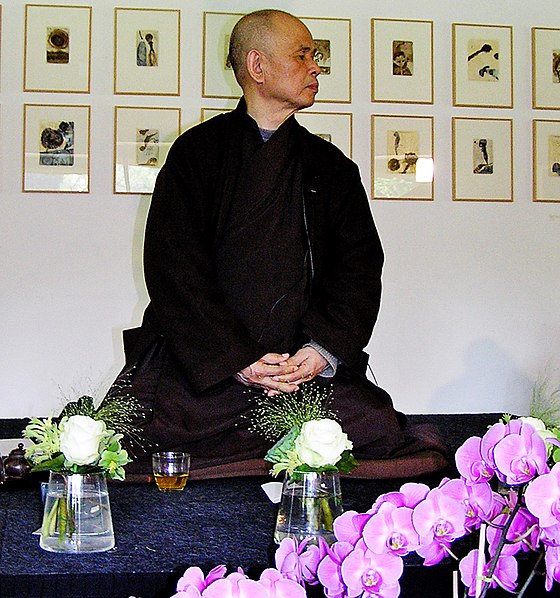
From Stanford's Center for Compassion and Altruism Research and Education, here is a new episode of Conversations on Compassion with host Dr. James Doty speaking with the venerable Zen Buddhist Thich Nhat Hanh, an event held at Stanford University on October 24, 2013.
From Wikipedia:
Nhat Hanh's approach has been to combine a variety of traditional Zen teachings with insights from other Mahayana Buddhist traditions, methods from Theravada Buddhism, and ideas from Western psychology—to offer a modern light on meditation practice. Hanh's presentation of the Prajñāpāramitā in terms of "interbeing" has doctrinal antecedents in the Huayan school of thought,[28] which "is often said to provide a philosophical foundation" for Zen.[29]Enjoy!
Nhat Hanh has also been a leader in the Engaged Buddhism movement (he coined the term), promoting the individual's active role in creating change. He cites the 13th-century Vietnamese King Trần Nhân Tông with the origination of the concept. Trần Nhân Tông abdicated his throne to become a monk, and founded the Vietnamese Buddhist school in the Bamboo Forest tradition.
Conversations on Compassion with James Doty, MD, and Thich Nhat Hanh
Published on Nov 10, 2013
The Center for Compassion and Altruism Research and Education (CCARE) is honored to host a discussion with Thich Nhat Hanh about his life experiences and the role compassion has played throughout them. Thich Nhat Hanh is an internationally renowned Zen master, prolific author, and teacher on the subjects of peace, mindfulness, and meditation. He became a monk at the age of sixteen and went on to help found the "engaged Buddhism" movement. His life's work has been dedicated to "inner transformation for the benefit of individuals and society" and he was nominated by Nobel Laureate Martin Luther King, Jr. for the Nobel Peace Prize in 1967.
No comments:
Post a Comment